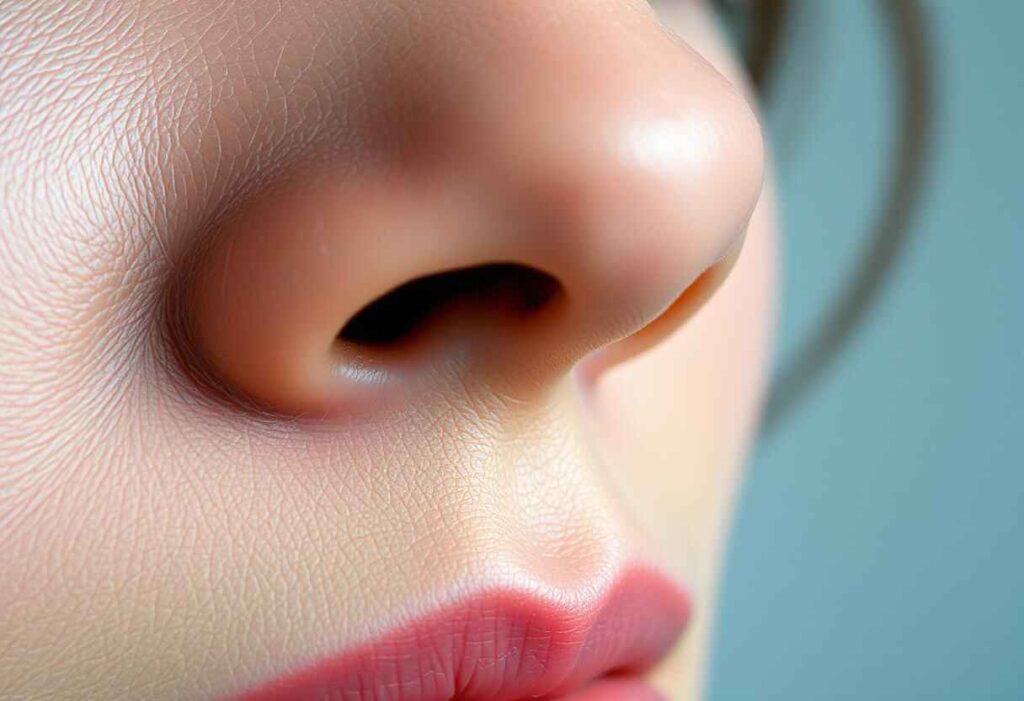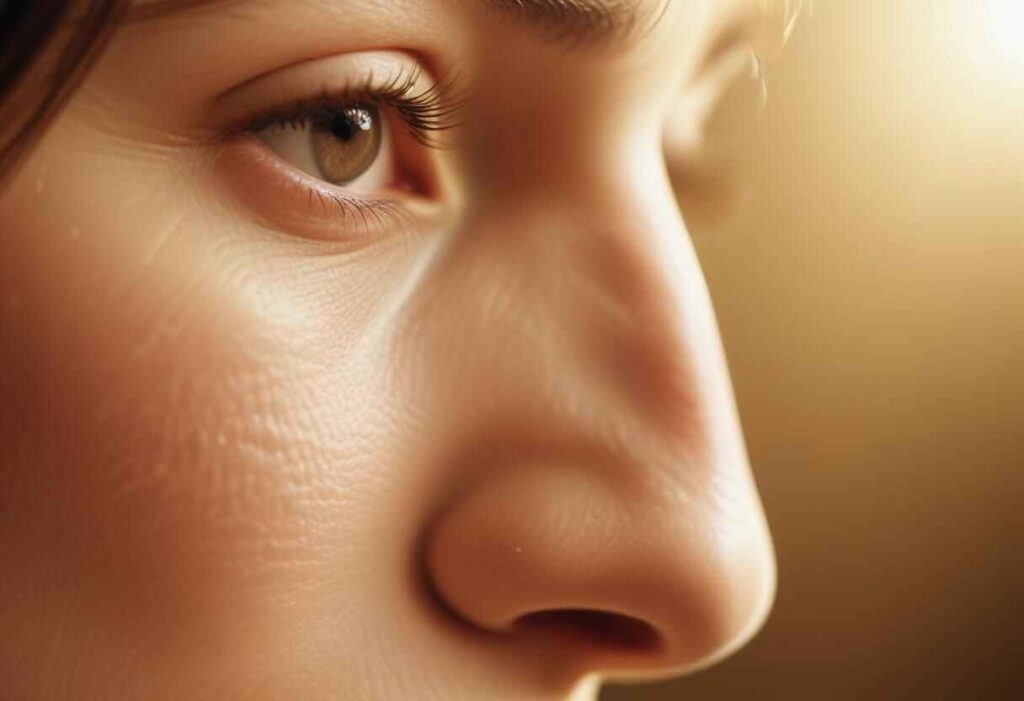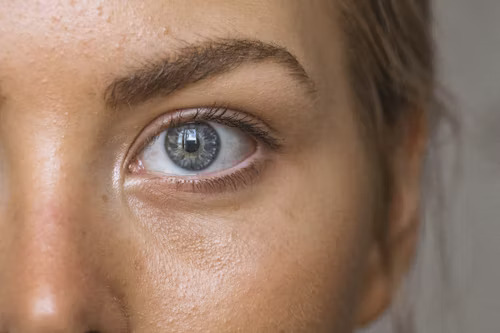Dry, flaky skin around your nose can be annoying and uncomfortable. But don’t worry! You can do some things before bed to help make it better by morning. Let’s talk about a nighttime routine to get rid of those flakes and make your nose feel soft and smooth.
Understanding the Problem: Why Does My Nose Get Dry?
Before we talk about fixes, let’s find out what’s making your nose dry. Here are some common reasons:
- Dry Weather: Cold or dry places can take moisture from your skin, making it dry.
- Hot Baths: Hot showers can feel good, but they can remove natural oils from your skin, making it dry.
- Strong Products: Tough soaps or cleansers can hurt your skin’s barrier, making it dry.
- Lots of Nose Blowing: If you’re sick or have allergies, blowing your nose a lot can dry out the skin.
- Health Issues: Sometimes, dry nose skin could be a sign of eczema or other conditions. If it won’t go away, talk to a doctor.
| Cause | Description | How It Affects the Nose | Prevention/Treatment Tips |
| Environmental Factors | Low humidity, exposure to wind or sun, air conditioning. | Dries out the nasal passages by reducing moisture. | Use a humidifier, apply nasal saline sprays, stay hydrated. |
| Dehydration | Inadequate water intake, excessive alcohol or caffeine consumption. | Leads to overall body dehydration, including in the nasal passages. | Drink plenty of fluids, limit alcohol and caffeine intake. |
| Allergies and Irritants | Allergic reactions to pollen, dust, pet dander, or exposure to smoke and chemicals. | Causes inflammation and dryness in the nasal lining. | Avoid allergens, use antihistamines, and avoid irritants. |
| Medications | Certain medications like antihistamines, decongestants, and nasal sprays. | These can dry out the nasal passages as a side effect. | Use medications as directed, consider alternatives if dryness persists. |
| Medical Conditions | Conditions like Sjögren’s syndrome, chronic sinusitis, or nasal infections. | These conditions can disrupt the normal moisture balance in the nose. | Consult with a healthcare provider for appropriate treatment. |
| Aging | Natural aging process can reduce mucus production in the nose. | Decreased mucus production leads to dryness. | Stay hydrated, use nasal moisturizers, consult with a doctor if severe. |
Helping Your Skin at Night
Now that we know what’s causing the dry skin, let’s make a plan to fix it at night:
- Clean Gently: Use a gentle, scent-no cost cleanser to wash away makeup, dirt, and oil. Look for ones made for sensitive skin. Wash your face softly with lukewarm water, then pat dry (don’t rub!).
- Exfoliate (Optional): If your skin is really flaky, you can gently scrub away dead skin cells. But be careful not to overdo it. Use a gentle scrub made for sensitive skin once a week.
- Moisturize: This is the most important action. For dry skin, use a heavy moisturizer without any fragrance. Seek for components such as glycerin or hyaluronic acid. Apply generously to face, avoiding the area around the nose.
- Extra Dryness Help: If your nose is super dry and cracked, try using something like petroleum jelly or Aquaphor. These can help heal your skin.
- Steam Your Face: Steam can add moisture to your skin. Fill a bowl with hot water, then lean over it with a towel over your head for 5-10 minutes.
- Lock in Moisture: Finish by putting on a thick night cream. This will keep all the moisture in your skin while you sleep.

Causes of Dry Skin on the Nose
Understanding the common causes of dry skin on the nose:
- Weather Conditions: Cold, windy weather and low humidity can remove the skin’s natural oils, causing dryness.
- Sun Exposure: Spending too much time in the sun can damage the skin’s moisture barrier, leading to dryness and peeling.
- Harsh Skincare Products: Some soaps, cleansers, and exfoliants contain strong chemicals that can dry out the skin.
- Underlying Skin Conditions: Issues like eczema, psoriasis, and seborrheic dermatitis can cause dry, flaky skin.
- Dehydration: Not drinking enough water can make your skin dehydrated, including the skin on your nose.
- Frequent Nose Blowing: During a cold or allergy season, constant nose blowing and wiping can irritate and dry out the skin.
Preventive Measures
While treatments can help alleviate dry skin, it’s important to adopt preventive measures to avoid it coming back.
- Hydrate: Stay hydrated from the inside out by drinking lots of water throughout the day.
- Protect Your Skin: Use a broad-spectrum sunscreen with at least SPF 30 every day to protect your skin from harmful UV rays. When you’re outside, put on caps, sunglasses, and protective apparel.
- Adjust Your Skincare Routine: Avoid using harsh products that can strip your skin of natural oils. Choose gentle, hydrating products instead. Also, avoid hot showers and use lukewarm water.
- Moisturize Regularly: To seal in moisture, apply a moisturizer right away after cleansing your skin. Apply a thicker moisturizer in the winter.
- Healthy Diet: Eat a balanced diet rich in vitamins and antioxidants. Foods high in omega-3 fatty acids, like fish and flaxseed, can help maintain healthy skin.

Tips for Nighttime Success
Here’s how to keep your skin healthy and hydrated:
- Use a Humidifier: In dry places or during winter, a humidifier in your bedroom can add moisture to the air, helping your skin stay hydrated.
- Get Enough Sleep: Your skin repairs itself most effectively when you’re well-rested. So, aim for a good night’s sleep.
- Use Silk Pillowcases: Cotton pillowcases can take moisture from your skin. Try using silk or satin ones instead, as they’re gentler and help your skin keep its natural oils.
- Drink Water: Drinking plenty of water every day is super important for your skin. Aim for about eight glasses a day.
Conclusion
Dry skin on the nose can be effectively managed with the right combination of cleansing, exfoliating, moisturizing, and targeted treatments. By following these steps and incorporating preventive measures into your daily routine, you can achieve soft, hydrated skin overnight and maintain it long-term.

